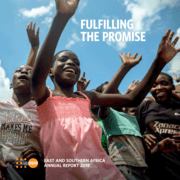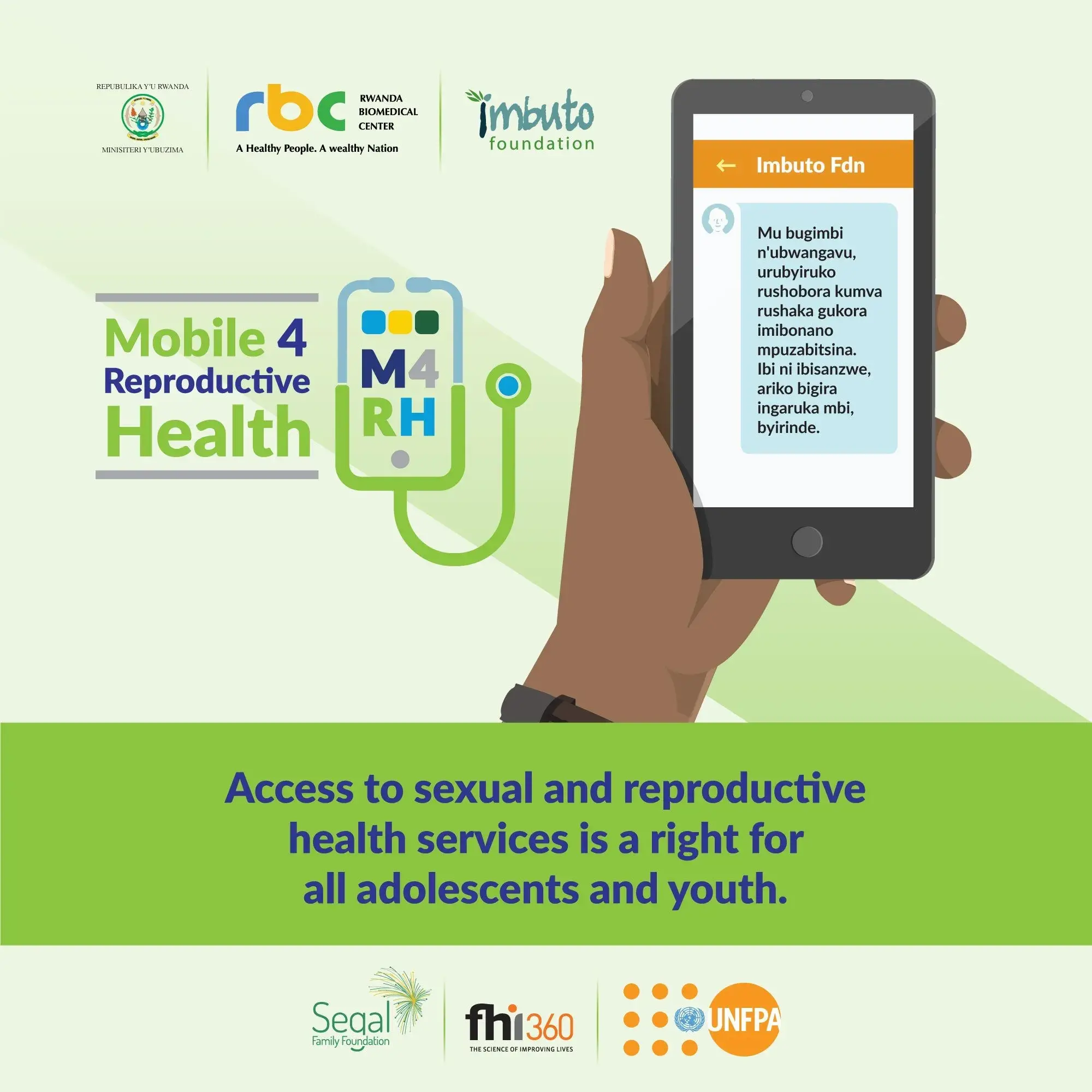MESSAGE FROM THE REGIONAL DIRECTOR
Looking back on our work in 2018, we made great strides in fulfilling our promise to improve sexual and reproductive health and rights in East and Southern Africa (ESA).
Through our evidence-based advocacy and strategic engagement with different partners and stakeholders, we contributed to transforming the policy environment in the region.
Many countries in the ESA region introduced and revised progressive policies regarding sexual and reproductive health and rights (SRHR), especially on HIV prevention, child marriage and comprehensive sexuality education.
Ten ESA countries used our ground-breaking research on the legal environment affecting adolescent sexual and reproductive health and rights (ASRHR) to inform legal and administrative reforms for removing barriers to ASRHR. Four SADC member countries—Malawi, Mozambique, Zambia and Zimbabwe—used the Southern Africa Development Community (SADC)
Model Law on Eradicating Child Marriage and Protecting Children Already in Marriage, supported by UNFPA, to amend their national legislations and develop costed implementation plans. However, a lot needs to be done to fully translate these policies and reforms into practice. Policies must leap into implementation, and this is where critical challenges remain.
Despite progress, access to SRHR information and services remains limited in many settings and groups, especially adolescents and youth. Significant additional investment in SRHR issues is missing. Women and youth, people with disabilities, and key populations, remain the most left behind.
In spite of policies to prevent gender-based violence (GBV), female genital mutilation and child marriage, harmful practices remain prevalent in many countries.
Similarly, maternal deaths are still at unacceptable levels—85,000 every year. This shocking haemorrhage of women’s lives must stop. The solution requires stronger efforts to improve health service delivery systems, emphasizing quality of care, client-centred integrated services and universal health coverage. Stronger efforts are required to meet the unmet need for long-term as well as short-term methods of modern contraception, to improve quality of care provided during pregnancy, delivery and post-delivery, and to reduce sexually transmitted diseases.
In 2018, UNFPA addressed these implementation gaps in many ways. We reached more people with client-centred and youth-friendly services, trained more health workers and teachers, delivered more affordable contraceptives, and strengthened the capacities of our partners, especially institutions representing young people.
A defining moment for UNFPA in the region was, in partnership with the Department of Women in the Presidency of the Republic of South Africa, hosting the first ever East and Southern African Symposium on Menstrual Health Management (MHM) in Johannesburg, South Africa. This resulted in strengthened commitment of policy makers and practitioners to better respond to the MHM needs of people who menstruate throughout their reproductive life cycle. It concluded with a regional Call to Action.
Later in the year, an African Coalition for Menstrual Health Management was established with a leadership structure and strategies for strengthening coordination, evidence-based advocacy and knowledge-sharing to ensure that policy and programmes on menstrual health management
are taken to scale across the continent. Read on to discover the impact of our work in 2018.
Finally, momentum is gathering around Universal Health Coverage in the region, creating a unique opportunity for UNFPA to advocate for the inclusion of comprehensive SRH services in every country’s essential health services package.
This, coupled with our ongoing efforts, will get us closer to realizing our transformative results: end preventable maternal death, end unmet need for family planning, end GBV and harmful practices, and end sexual transmission of HIV, with a clear priority of reaching first those left furthest behind. Dr. Julitta Onabanjo Regional Director




